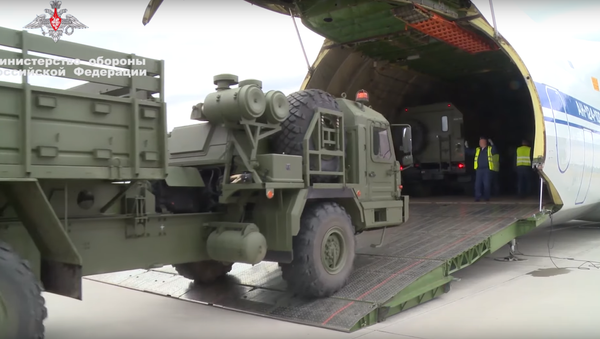It is difficult to understand for security experts why Turkish President Recep Tayyip Erdogan wants the Russian-made S-400 air defence systems “at all costs”, Boris Kálnoky laments in his article for the German media site Die Welt. In his article, titled “With Russian Missiles, Erdogan Parts With West”, the German journalist suggests that the fact that Ankara decided to proceed with this deal could be seen as “the point of no return” for Turkey, after which it would leave the ranks of allies.
According to the outlet, Turkey decided to stick to the deal despite the criticism of NATO and the US, as it treats Russia as a negotiation partner in the Middle East, while Moscow is said to have more of an influence in the region than the US.
Another probable explanation, according to the Die Welt correspondent, is that the Turkish president wants to steer clear of the US as the S-400 systems might be stationed near the country’s capital. As the outlet points out, in the 2016 coup attempt, the Turkish parliament was attacked from the sky, so the head of the country might be concerned that if it deployed US-made Patriot missiles, Washington would be able to switch them off remotely if they were needed in a similar situation.
Notably, the commitment to the S-400 deal found support even in Turkey's opposition Republican People's Party, as its leader Kemal Kilicdaroglu backed the efforts to ensure the country’s security and slammed the US for its refusal to sell Patriots to Ankara.
"If Turkey's past desire to purchase Patriots [US-made missile defence systems] was not met, of course, it will pursue other options to ensure its security," Kilicdaroglu said, as quoted by the Anadolu news agency.
Recently, Donald Trump blamed the current standoff on then-President Barack Obama's refusal to sell Patriot missiles to Turkey, and said Turkey had not been treated fairly. Several months ago, the US finalised a $3.5 billion Patriot missile deal for Turkey, but Ankara has yet to accept, saying the terms proposed by the US aren't as good as its deal with Russia, which it signed in December 2017. The Turkish Defence Ministry said on 2 July that the first shipment of S-400 air defence missile systems had landed in Ankara.
Turkey, which is a NATO member state, has repeatedly said that the system does not pose any threat to the alliance. But NATO and the US strongly criticised Turkey's cooperation with Russia, claiming that the S-400 system was incompatible with NATO's air defence systems, while Washington insisted that Ankara should buy its Patriot systems instead and threatened to freeze the F-35 deal.
Over the weekend, Bloomberg reported, citing sources, that Washington is planning to announce sanctions against Ankara at the end of the next week as the team of US President Donald Trump has already decided on it.


